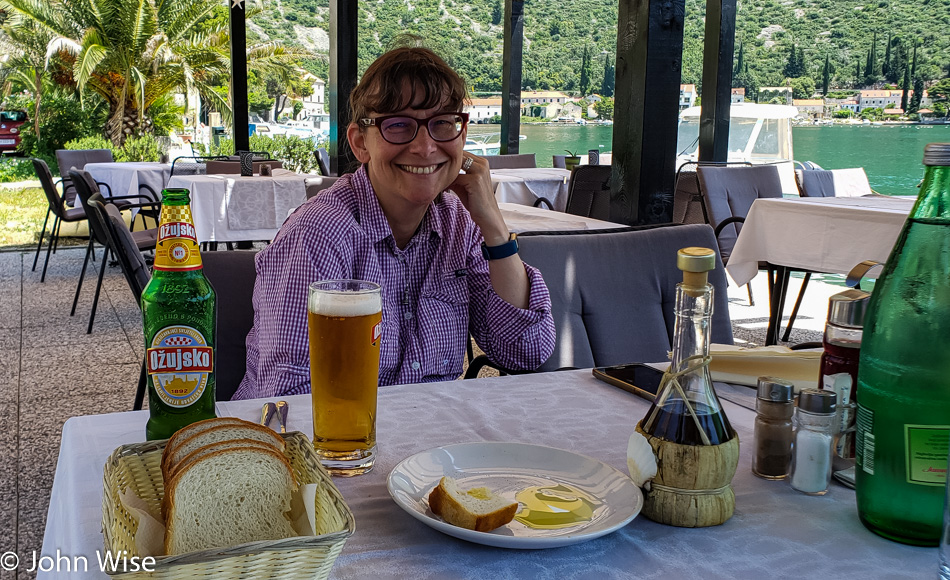
With only five hours left next to the Adriatic, we had to make the best of our brief remaining moments here. After breakfast, we continued hanging out next to the sea until lunch finally crept up on us. Squid and sardines were served up as our last meal in Croatia. A nice slow start to the day, savoring a few impressions, was the elixir we needed instead of racing around trying to capture 1,000 new memories that wouldn’t fit into our dwindling supply of time.
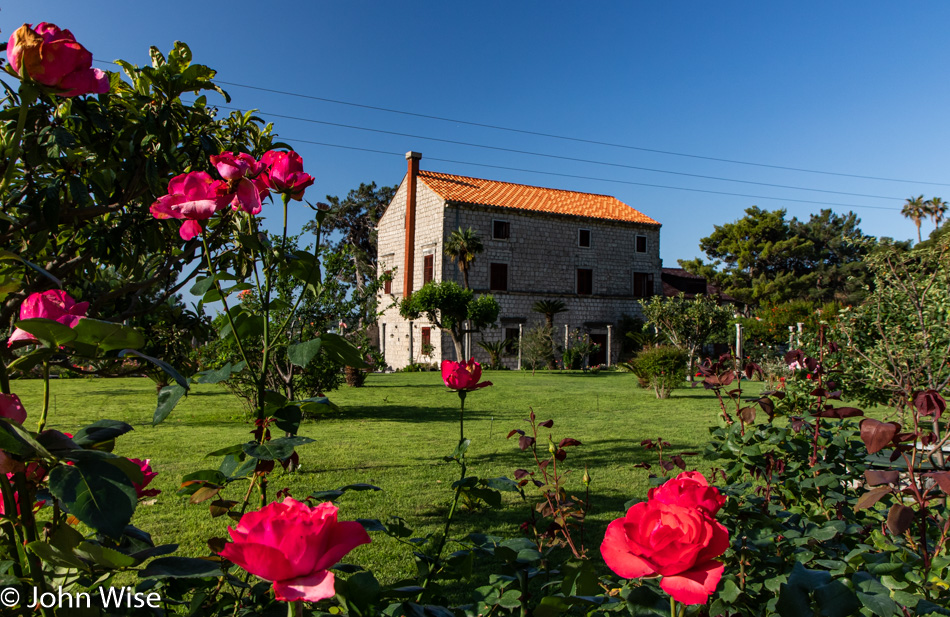
We took another walk through the garden of our lodging, with stops to smell the roses along the way.

We tried moving through with all the speed of a turtle, but they have more practice at that, and so no matter how much we slowed down, we appear to be in a race to see whatever comes next.
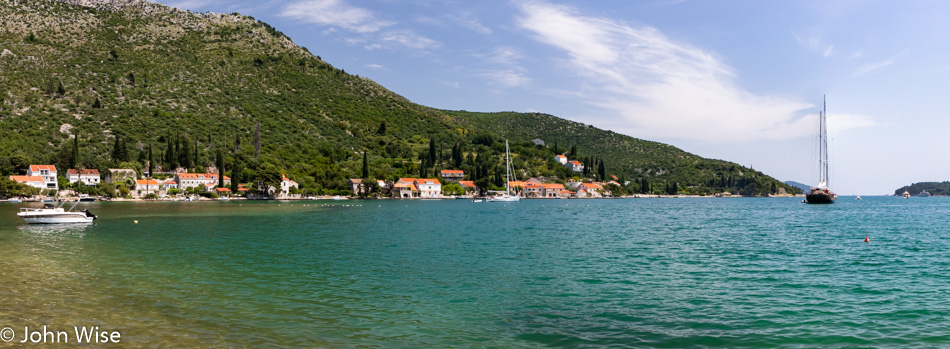
One last view over this very Mediterranean-looking scene as Petar is driving up to bring us to the airport.

The Dubrovnik airport is a good distance south of the city and only about 20 miles north of the farthest southern point of Croatia.
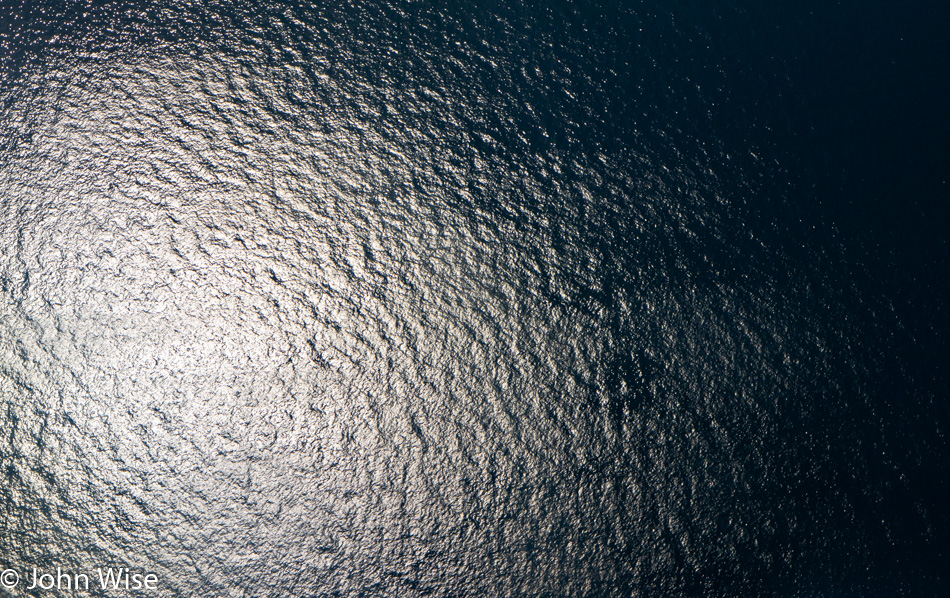
For the better part of this trip, I was nearly constantly contrasting the nature of this adventure with what I perceived as more immersive journeys into places such as the Grand Canyon or Alaska because those locations feel more physically remote. On those river trips, the people we traveled with stayed the same, and the landscape only gradually changed. Here in Croatia, Bosnia, and Montenegro, the passengers remained the same, but hosts, guides, cities, and landscapes changed along with ethnicity and religion as we bounced between environments.
A part of me found these contrasts to be a disrupting factor in finding full immersion, but now that we are returning to the world we know, I started to gain insight into how the Balkans were, in many ways, like the walls of the Grand Canyon. Surrounding us was the culture, history, and language that contained us on a path through the places we traveled it is as though we crept along down the Colorado River isolated from the familiar.
Why it took me this long to recognize this cannot be answered at this moment, but maybe it had something to do with my travel companions who brought the insulation of America with us. During this journey, we are constantly adjusting our mental, social, and cultural maps in much the same ways we adjust our sense of place as we raft, kayak, or canoe a stretch of water that is changing with the environment. We convulse out of our frames of reference while simultaneously trying to dance with a dozen other travelers we know nothing about. We must try to maintain social cohesion and civility with some diverse personalities that, for a brief time, all exist outside of each other’s version of normal.
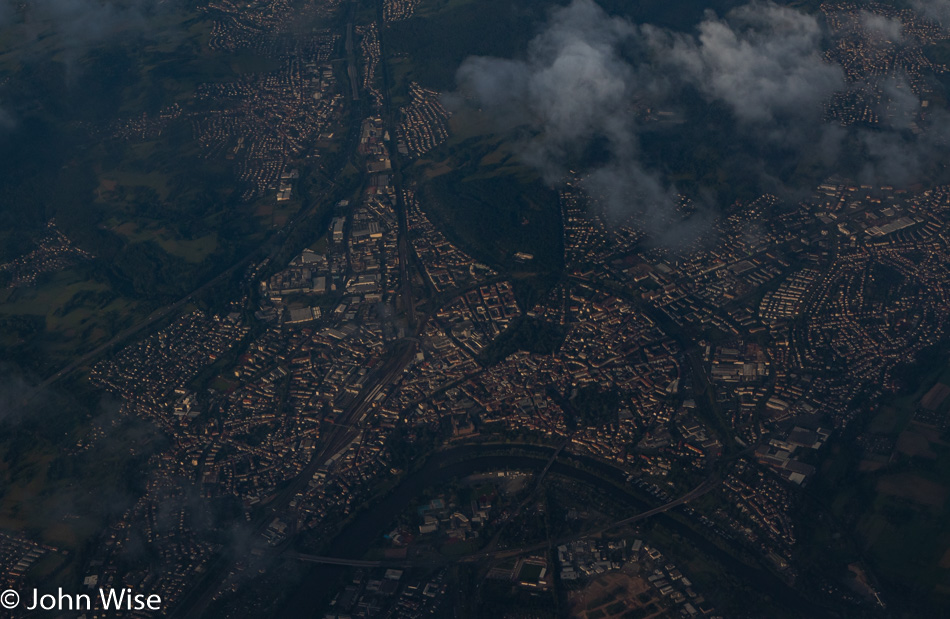
There is little anonymity in such a small group with few places to hide; maybe this helps explain the majority escaping to bed so early in the evening and seeming to sleep in so late. We are being laid bare to each other and, to a degree, made vulnerable. When I look deep within myself, I find hostility and outright disdain for others that I want to conform to my ideas of what it means to listen, observe, respect, not complain, and be in the moment instead of demonstrating superficial trivialities about shared media experiences and previous travel drivel that has no place in an environment where we are allowed to be present and not distracted by our pasts and occupied by the future.
For those who equate stillness and quiet with boredom combined with the conflict of not understanding a different language or taste in music, food, history, and religion, it seems that immersion might be perceived to be another kind of silence, and hence it too is boring. In those moments, people turn to what they know. When I’m in earshot of their boredom and dismissiveness, I feel a part of my immersion destroyed by their intolerance. I’ll be thinking long and hard into the next few days about this phenomenon of isolation and long periods of sleep as a coping mechanism in others for dealing with all of the uncertainty and unknowns of being in foreign places.
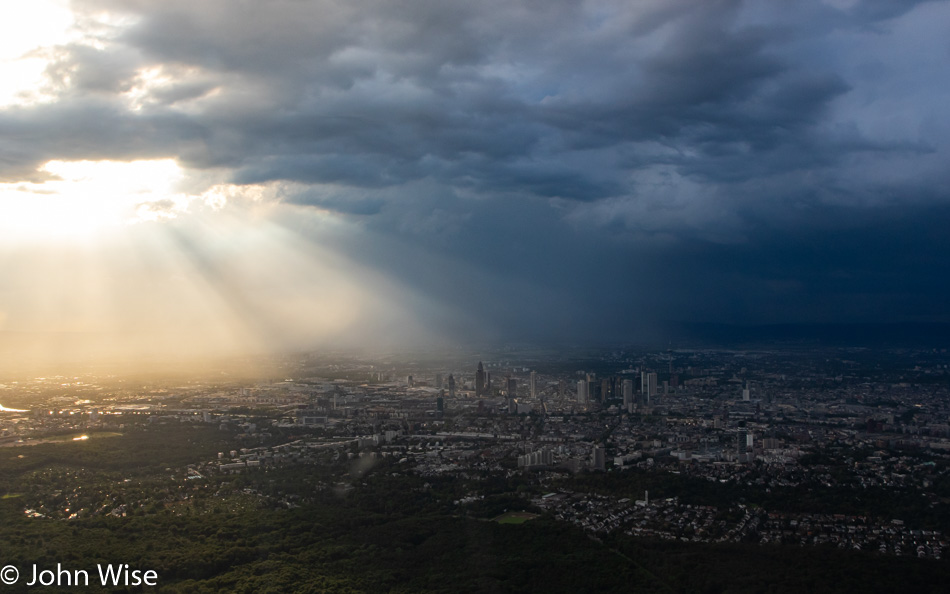
Reentry hits hard once we are on the train in Frankfurt. The bustle, absurdity, and fashion cliches are all hitting us in much the same way as when we leave other river trips. Upon first witnessing people dealing with the reality we’d left behind, we tend to recoil as their routines appear loaded with superficial banalities.
This luxury found by a curiosity that is willing to take us into experiences surpassing our expectations never fails to make itself known in the surprise that it was us who just left the incredible. I’m left wondering how Alexander von Humboldt and other explorers like him might have felt after leaving the beaten path and discovering things that not only changed him but changed life for everyone on the planet. This intention of venturing out to actively seek knowledge as opposed to passive observation from the sideline remains profoundly inspirational to me.